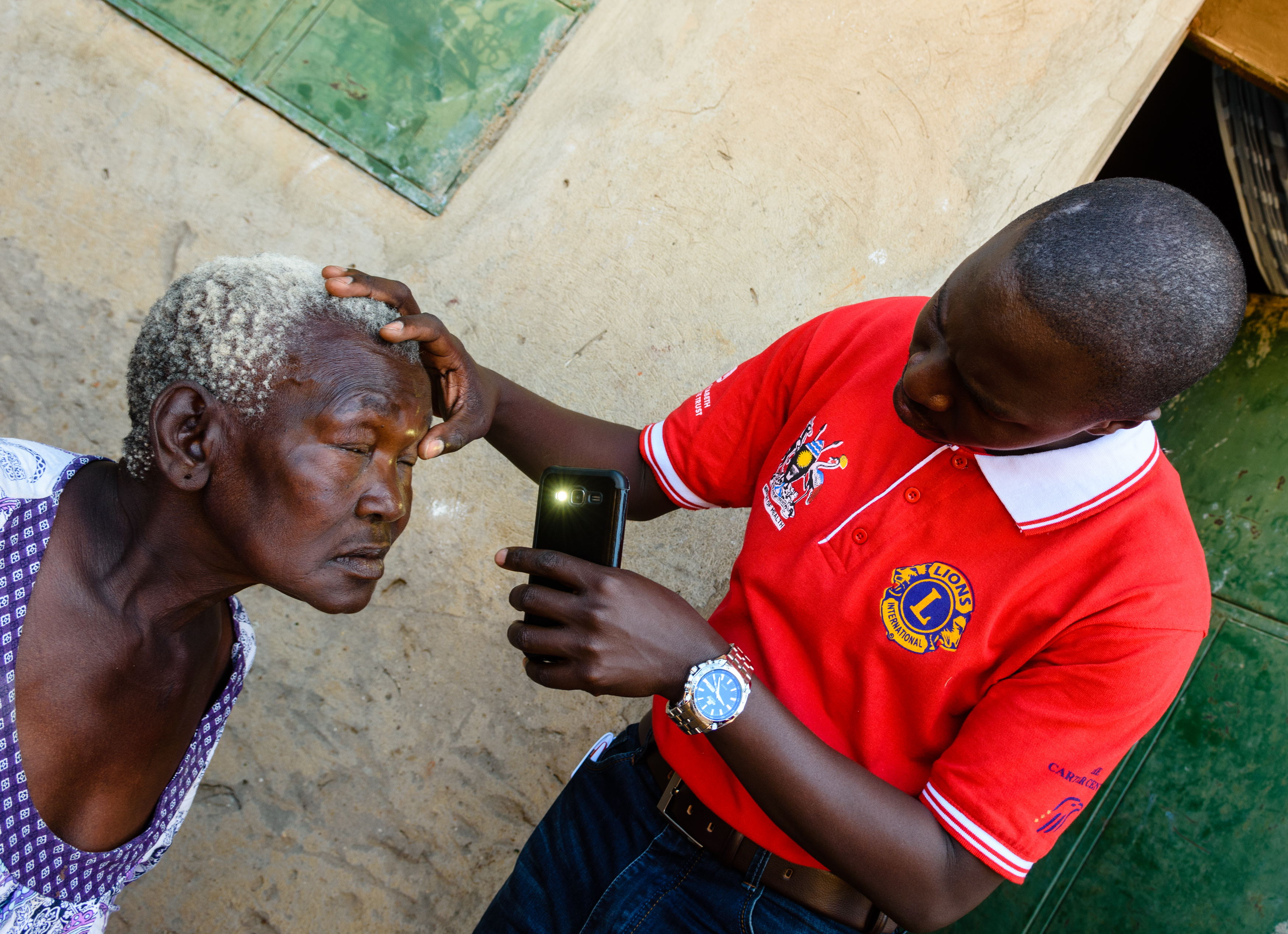From helpless to hopeful
As a result of The Lions-Carter Center partnership, the World Health Organization has verified four countries in the Americas as free of river blindness (Colombia, Ecuador, Mexico, and Guatemala). River blindness transmission also has been interrupted and mass drug administration halted in significant areas of Sudan, Uganda, Nigeria, and Ethiopia. Further to this, the Amhara Region of Ethiopia, which suffers from the worst known trachoma prevalence in the world, has witnessed over 5 million people no longer requiring mass drug administration to prevent the disease, and the backlog of patients requiring surgery dwindle exponentially each year. Millions are free from these diseases thanks to the Lions-Carter Center partnership and Lions support. These accomplishments would not have occurred without LCIF’s early investments, and the constant support and advocacy of Lions Clubs in each country.The World Health Assembly adopted resolution WHA 47.32 in 1994 calling for the use of mass drug distribution for onchocerciasis, and WHA 51.11 in 1998, targeting the global elimination of trachoma as a public health problem.
A desperate vision crisis
Even though river blindness and trachoma are a completely preventable disease. The World Health Organization provides these sobering estimates*:
- 20.9 million people infected with river blindness; 1.15 million with vision loss due to parasite.
- 99% of persons infected with river blindness are in Africa – also found in Yemen and Latin America (Brazil and Venezuela)
- 142 million people are at risk of trachoma blindness and once blinded, the condition is irreversible.
- Trachoma is a public health problem in 44 countries, mostly in Africa.
- Trachoma is responsible for blindness or visual impairment of about 1.9 million people.
- Trachoma is a completely preventable disease.
*Source: https://www.who.int/news-room/fact-sheets/detail/onchocerciasis
Mobilizing communities
Local Lions Clubs help mobilize communities to participate in drug distribution, eyelid surgery campaigns, and latrine constructions. Lions provide ongoing technical support, monitor progress, and meet with influential leaders in their countries to advocate for continued attention to river blindness and trachoma.
A valuable partner

Since 1994, LCIF has partnered with The Carter Center to eliminate river blindness and trachoma. Over two decades, LCIF has approved more than 60 river blindness and trachoma grants to The Carter Center, totaling over US$72 million. Notably, through the Lions-Carter Center SightFirst program:
- more than 327 million treatments have been provided to eliminate river blindness;
- over 204 million treatments have been provided to halt the blinding effects of trachoma;
- over 955,000 sight-saving surgeries to reverse the advanced stage of trachoma have been performed; and
- more than 3.2 million latrines have been built to reduce transmission of infection.
Through continued work in partnership, we are confident that together we will reach our shared goals of eliminating river blindness and trachoma.
Our focus
- Lead the world in establishing and strengthening comprehensive eye care institutions and systems through capital expansions, equipment provisioning and human resource training.
- Support national efforts to eliminate blinding diseases like onchocerciasis (“river blindness”) and trachoma, the world’s leading causes of infectious blindness and visual impairment, through volunteer training and supervision, advocacy, surgical services, and distribution of appropriate medications.
- Lead the global response to the uncorrected refractive error challenge by supporting projects that provide high-quality, sustainable and high-impact refractive error services.
- Enhance and expand Lions-led comprehensive vision screening programs for adults and children.
Our mission
To strengthen eye care systems in underserved communities, enabling them to fight blindness and vision loss and assist those who are blind or visually impaired.
